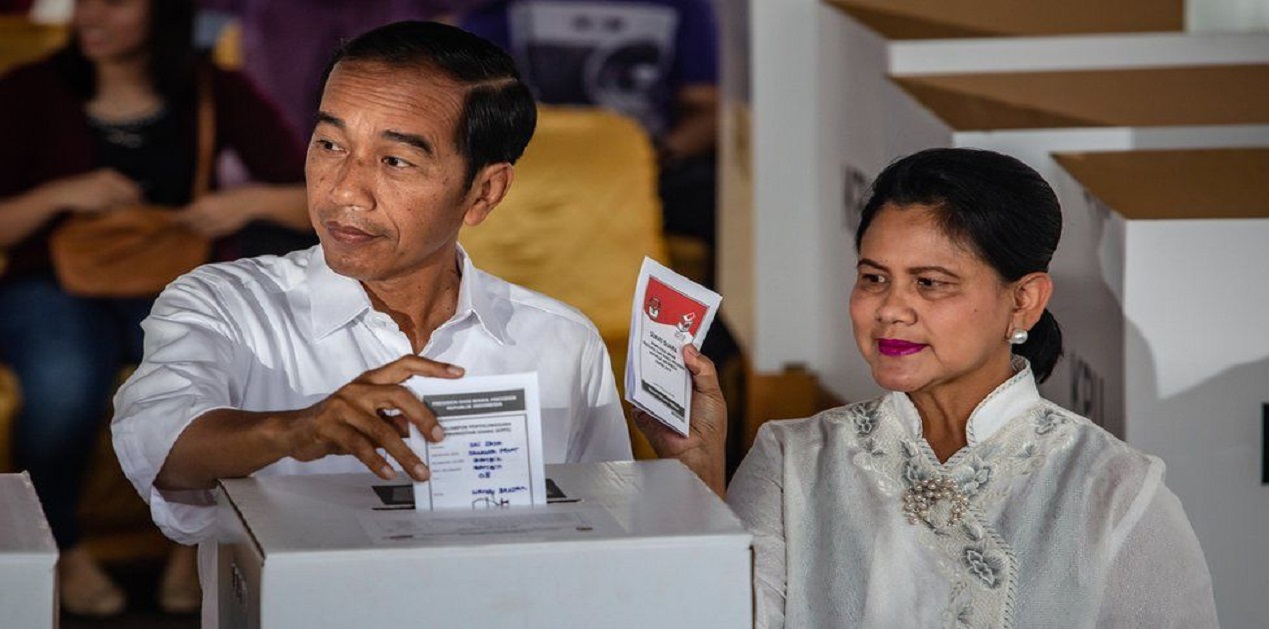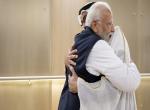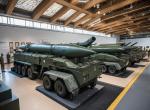In an occurrence rare in politics, Indonesia stands out as one of the few countries in the world where a rival Presidential candidate of another political party is appointed to one of the highest ministerial positions within the ruling government post-general election. After the last General Election in Indonesia, Army Lieutenant General Prabowo Subianto (retired), the Chief of the Gerindra Party, a right-wing populist political party was appointed as the Indonesian Defence Minister in 2019. Prabowo and his party secured 44.5 percent of the total votes against the Joko Widodo or Jokowi, who secured 55.5 percent. Probabowo was interestingly, Jokowi’s primary rival candidate during the general election in 2014. In both elections, Prabowo Subianto presented himself as a solid alternative to Joko Widodo's leadership, criticizing his policies and governance. He was known for his nationalist and conservative stance on various issues, including economic policies, social welfare, and political matters.[1]
Among the three potential presidential candidates in the general elections due in 2024, Ganjar Pranowo from the nationalist party PDIP, whose popularity as President is pegged at 35.9 percent, followed by Prabowo Subianto from Gerindra Party, at 32.8 percent, and Anies Baswedan is at 20.01 percent according to CNBC, Indonesia published in June 2023.[2] Prabowo is a descendant of a Javanese prince, Deponegoro, who opposed Dutch colonial rule.[3] A wealthy businessman and the current Defence Minister of the country has served as the Lieutenant Gen in the Indonesian Army during Suharto’s rule. In the current media extrapolation, he is unofficially leading the race raising a strong possibility that he will be a powerful politician, even if he fails to be the next President of Indonesia.
In Indonesia, the process of a rival candidate becoming an essential minister in the ruling government can vary depending on the coalition government's political dynamics, negotiations, and power-sharing arrangements. It is common for political parties to form a coalition government after an election. If no single party secures an absolute majority of seats in the parliament, parties may come together to create a coalition to have a working majority in the legislature. Within a coalition government, parties often negotiate power-sharing agreements. These agreements may involve distributing key ministerial positions among the coalition partners. Parties with a significant number of seats in the parliament can leverage their bargaining power to secure critical ministerial portfolios. Suppose the rival candidate's political party performs well in the election and becomes part of the coalition. In that case, their party may be able to propose candidates for ministerial positions during negotiations. The party leadership, including the rival candidate, may actively lobby for the important ministerial role.
Ultimately, appointing a rival candidate as an essential minister lies with the ruling party or parties. Despite any previous political rivalry, they must be willing to accept and endorse the candidate. The decision on consensual power sharingis based on political calculations and the need to maintain a stable and functioning government. Therefore, the appointment of the former member of Suharto's government, Lt. Gen Prabowo Subianto, who was allotted the defence ministry and deemed fit for the Defence Minister can be said to be based on political expediency, although undoubtedly he also is eminently eligible to lead the defence ministry due to the his experience and popularity in the Indonesian armed forces.
There is a historical trajectory of the current accommodative nature of political consensus in the democracy of Indonesia. Sukarno, the first President of Indonesia, was one of the most legendary and visionary leadersof Indonesia and universally respected by the people because of his struggle in the freedom movement. He convened and chaired the famous Asia Africa or Bandung Conference (AAC) in 1955. While Nehru, India's first Prime Minister played a significant role in the conference, the concept was a collaborative effort involving leaders from various Asian and African countries. The conference aimed to promote cooperation, solidarity, and decolonization among Asian and African nations. It brought together leaders such as Sukarno of Indonesia, Nehru from India, Zhou Enlai of China, and Gamal Abdel Nasser of Egypt, among others, who contributed to the formulation and success of the conference.
As the host of the AAC, Bandung President Sukarno gained significant recognition on the global stage. His charismatic personality, indubitable leadership, impassioned speeches, and strong advocacy for decolonization and non-alignment resonated with many leaders and delegates from participating Asian and African countries. Sukarno's active involvement and prominent role in the conference helped solidify his reputation as a prominent leader in Indonesia and internationally.
In 1963 the formation of Malaysia began. The Federation of Malaysia was established on September 16, 1963, through the merger of Malaya, Singapore, Sarawak, andSabah (formerly North Borneo). Following this announcement, Sukarno and the Indonesian government immediately voiced their opposition to the formation of Malaysia. They viewed it as a threat to Indonesian territorial integrity and a continuation of Western colonialism in the region by proxy. Sukarno's opposition led to adoption of the "Konfrontasi" policy, which included various forms of political and military confrontation against the newly formed federation of Malaysia. Further, Sukarno viewed the creation of Malaysia as a continuation of British colonial influence in the region. He saw it as a masked attempt to maintain Western control and dominance in Southeast Asia, contradicting his vision of a united and independent post-colonial region.
Therefore, Sukarno sought support from China in his opposition to Malaysia, seeking political and military assistance. Sukarno saw China as a fellow anti-imperialist nation and a potential ally in his efforts to challenge Western influence in the region. On the other hand, under Mao Zedong's leadership, China saw an opportunity to gain influence in Southeast Asia, and the legacy remains today. China provided Indonesia with political, economic, and military assistance during this period. Chinese weapons and military advisors were sent to Indonesia, and there were reports of Chinese troops operating in Indonesian territory near the border with Malaysia. The support from China bolstered Sukarno's position and gave him confidence in his opposition to Malaysia. However, the already growing Communist Party of Indonesia (PKI) also raised apprehensions among the Muslim cliques in the Indonesian army about their future if Indonesia eventually fell into the hands of communists.[4]
The Coup d'état: A Shift in Indonesia’s Political Paradigm
After the independence, Indonesia experienced significant economic and political instability during Sukarno’s presidency because of the diversified views of four major political parties belonging to Islamic, Communist, Nationalist, and Socialist ideologies.[4]
The AAC and the further developments in Indonesia were not taken in good spirits by the USA due to its reliance upon the colonial powers, and it assumed that the conference was a possible emerging left-leaning bastion. The confrontation with Malaysia did not last for long as, in September 1965, an attempted coup d'état known as the ‘30 September Movement’ took place. A group of military officers, who were allegedly affiliated with the Indonesian Communist Party (PKI), allegedly launched the coup, resulting in the assassination of several senior military officers. The coup failed, and the blame was placed on the PKI.
The rivalry among these political cliques grew within, and Gen Suharto took over the reins of power of the country in 1967 after an engineered tumultuous coup d'état and mass violence in the country. The coup d'état was initially portrayed as a communist-led coup. However, it is still controversial as the true motive is still unclear. There are several theories and perspectives regarding why some members of the Indonesian Communist Party (PKI) may have been involved in the attempted coup. The PKI was a significant political force in Indonesia during that time, with a substantial proletarian support base among the farmers and workers. One of the essential causes may be that the PKI itself was a diverse and complex organization with different factions and power struggles.
Some argue that the coup attempt was a desperate move by a faction within the PKI to gain power and eliminate its political opponents, including military leaders and rival political groups. On the other hand, Sukarno pursued a policy which he called "Nasakom" (Nasionalisme-nationalism, Agama-religion, and Komunisme-communism), aimed to balance the influence of the military, Islam, and communism. Some members of the PKI may have believed that the coup would strengthen their position within the Nasakom framework and give them more significant influence over government policies.
There are also claims that elements within the military and other political groups orchestrated the coup attempt as a pretext to crack down on the PKI. These actors may have used disaffected members of the PKI or manipulated the situation to implicate the party in the coup attempt, justifying subsequent anti-communist actions. Whatever the actual reason, the coup attempt resulted in an anti-communist purge and the eventual fall of Sukarno's government. General Suharto, the Indonesian Army's Strategic Reserve commander, took advantage of the chaotic situation. He led a military campaign against the alleged PKI sympathizers, which resulted in widespread violence, mass killings, and purges of suspected communists and their relatives.[6]
Suharto's campaign against the PKI gained support from various factions within the military, as well as from civilian and religious groups who were opposed to communism. He gradually consolidated his power by removing Sukarno's loyalists from critical positions and gaining control over essential institutions. In March 1966, Sukarno issued a decree known as Supersemar, granting Suharto authority to restore order and take any necessary actions to safeguard the state. This decree effectively transferred significant power to Suharto, who used it to sideline Sukarno and further consolidate his control.[7] Sukarno was stripped of his executive powers, and Suharto took over as Acting President in 1967. Sukarno was kept under house arrest, and his role became largely ceremonial. In 1968, the Provisional People's Consultative Assembly (MPRS) officially declared Suharto as the President of Indonesia. This marked the transition from Sukarno's era, the Guided Democracy, to Suharto's regime, known as the New Order.
During Suharto's presidency, the Indonesian military played a significant role in maintaining political stability. Suharto relied on the military to suppress dissent and maintain his rule and cultivated close ties with military leaders. However, there were also periods of tension within the military, including factionalism and power struggles, which occasionally led to purges and changes in leadership. As days passed, Suharto turned harsher and dealt with an iron hand against any dissidence related to his policies. Under his rule, Indonesia achieved notable economic growth during the 1970s and 1980s. The government prioritized economic stability and controlled inflation by implementing tight fiscal and monetary policies. These measures helped attract foreign investments and maintain macro-economic stability.[8]
However, Suharto promoted nepotism, and the concentration of economic power and wealth remained in the hands of a select few, including his family and close associates. Corruption and cronyism were prevalent, and economic benefits were often unevenly distributed, leading to rising income inequality and discontent among specific segments of society. Despite the economic growth, significant challenges remained. Poverty and unemployment persisted, particularly in rural areas, and social development indicators lagged behind economic growth. Additionally, the economic crisis that swept through Asia in the late 1990s, known as the Asian Financial Crisis, severely impacted Indonesia's economy and exposed underlying structural weaknesses.
Democratic Era
The highly centralized bureaucracy under Suharto's regime concentrated power in the hands of a few individuals. This concentration of power made it easier for corrupt officials to manipulate regulations, embezzle funds, and engage in corrupt practices. Decentralization and checks and balances were largely absent, enabling corruption to thrive. This system allowed corrupt officials and their associates to control critical industries and accumulate wealth illegally. The state's involvement in business sectors such as natural resources, infrastructure, and licensing facilitated corruption on a large scale.
The Suharto regime maintained control through a combination of coercion and patronage. Dissent was suppressed, and those who opposed the regime or exposed corruption risked severe consequences, including imprisonment or disappearance. This culture of fear discouraged individuals from speaking out against corruption, further perpetuating its normalization.
During the Suharto period, corruption became profoundly ingrained and widespread in the country. His authoritarian regime centralized power and maintained a tight grip on politics, including Islamic radicalism, the economy, and society. This centralized control created an environment conducive to corruption, allowing those in power to exploit their positions for personal gain with minimal accountability. He founded a culture of cronyism and nepotism, creating a network of corrupt individuals who received special privileges, including access to lucrative business deals, government contracts, and natural resources. The regime created an elite class that benefited from its political connections, perpetuating a culture of corruption. His government operated with limited transparency and weak accountability mechanisms. The regime often controlled or influenced critical institutions such as the judiciary, law enforcement agencies, and anti-corruption bodies. This lack of independence allowed corrupt officials to act with impunity, knowing they were unlikely to face the consequences. [9]
Suharto ruled the country for thirty-two years, only to be deposed in 1998 following the independence of East Timor and the economic crisis. Widespread public protests and demands for political and economic reform drove the fall of Suharto. This period, known as Reformasi, witnessed the dismantling of the authoritarian regime and established a more open political environment. A transitional government led by President B.J. Habibie was formed. Habibie, a technocrat by profession, was educated in Germany, and implemented democratic reforms, including the lifting of restrictions on political parties and the press, and initiated a process of constitutional reform. The post-Suharto era also witnessed periods of political instability and social unrest. In 1999, Indonesia held its first democratic elections in over three decades. The demand to address the malignity in Indonesian politics, popularly known as KKN-the Indonesian acronym for corruption, collusion, and nepotism, became the call for Indonesia's democratic and economic reform.
The elections resulted in the victory of Abdurrahman Wahid, popularly known as Gus Dur, who became the country's first democratically elected President. However, he faced impeachment in 2001 on a corruption charges, and was succeeded by his Vice President, Megawati Sukarnoputri. In 2004, Susilo Bambang Yudhoyono was elected President and served two terms until 2014 and thence followed Joko Widodo, popularly known as Jokowi. During Jokowi’s present regime Indonesia has made significant efforts to address corruption through legal reforms, such as establishing anti-corruption agencies and promoting transparency and accountability. Moreover, one of them such agencies is KPK which tries to nail down the corrupt officials.
It is in the light of this historical background that the rise of Lt Gen Prabowo must be assessed. Lt Gen Prabwowo’s grandfather was the founder of the famous Indonesian Bank BNI (Bank Negara Indonesia), and his father, Sumitro, was an economist and served as the Minister of Economy and Research & Technology during Suharto’s rule and promoted development of indigenous technology for Indonesia. However, Indonesia is still heavily reliant on China for its hundreds of projects, and faces several challenges, such as unemployment, debt trapped economy, rights to freedom of religion and belief, management of frequent natural disasters which would be some of the deciding factors in the coming general election in 2024.[10]
References
[1]https://www.bbc.com/indonesia/indonesia-45140911
[2]https://www.cnbcindonesia.com/news/20230601204244-4-442468/3-survei-terbaru-capres-2024-ganjar-vs-prabowo-vs-anies
[3]https://kumparan.com/kumparannews/prabowo-subianto-dan-keluarganya/full
[4]Bunnell, F. P. (1966). Guided Democracy Foreign Policy: 1960-1965 President Sukarno Moves from Non-Alignment to Confrontation. Indonesia, 2, 37–76. https://doi.org/10.2307/3350755
[5]Bandyopadhyaya, K. (1977). THE INDONESIAN ECONOMY IN TRANSITION: FROM GUIDED ECONOMY TO NEW ORDER. India Quarterly, 33(4), 432–453. http://www.jstor.org/stable/45070703
[6]Bass, J. R. (1970). The PKI and the Attempted Coup. Journal of Southeast Asian Studies, 1(1), 96–105. http://www.jstor.org/stable/20069850
[7]Suryadinata, L. (1987). SUHARTO’S INDONESIA: Two Decades On. Southeast Asian Affairs, 131–145. http://www.jstor.org/stable/27908572
[8]https://eh.net/encyclopedia/the-economic-history-of-indonesia/
[9]Robertson-Snape, F. (1999). Corruption, Collusion, and Nepotism in Indonesia. Third World Quarterly, 20(3), 589–602. http://www.jstor.org/stable/3993323’
[10]https://www.aninews.in/news/world/asia/indonesia-becomes-more-reliant-on-china-likely-to-face-sri-lanka-type-debt-trap-reports20230502201105/
(The paper is the author’s individual scholastic articulation. The author certifies that the article/paper is original in content, unpublished and it has not been submitted for publication/web upload elsewhere, and that the facts and figures quoted are duly referenced, as needed, and are believed to be correct). (The paper does not necessarily represent the organisational stance... More >>
Image Source: https://www.bbc.com/news/world-asia-47943905



.jpeg)






Post new comment